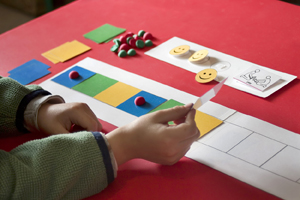Managing Autism
Managing Autism
Children with autism have trouble relating to others. They may not respond to social cues such as smiles or eye contact. They may also dislike being held or cuddled. They may be slow learning to talk. Many children with autism can thrive with early help. No one type of program or treatment is right for every child. Many children do well with behavioral-educational therapy. Medicine therapy may be useful in some cases. There are also many support services for children with autism and their loved ones.
Behavioral-educational therapy
Special therapists can help your child learn language and social skills. They can also help your child with basic life tasks. These may include learning to cross a street safely or count money. Children with autism do best with highly structured school programs tailored to their needs. Some may succeed in a one-on-one or small group setting. Others may do well in regular classes with special support. All children learn best when they are very young. So therapy should begin as soon as your child is ready. Work closely with school staff to develop the best program possible.
Medicine therapy
Certain medicines may help treat the associated behaviors of autism. Medicines may reduce anxiety or treat other symptoms.
Ongoing support
In most cases, you'll be able to support your child at home. There are many services that can help you. Sometimes your child may need other kinds of support. In that case, group homes or assisted living settings can provide a safe place for your child. Become familiar with the Americans with Disabilities Act (ADA) so you know both the services and the legal protections available to your child.
Looking ahead
Each child with autism is unique. Some may have only mild symptoms. Others may have symptoms that lessen as they get older. These children often can lead quite normal lives. Children whose autism is more severe may need ongoing support. With help, children with autism can look forward to better lives.
Resources
American with Disabilities Act (ADA) www.ada.gov
Autism Society of America 800-328-8476 www.autism-society.org
Families for Early Autism Treatment (FEAT) 916-303-7405 www.feat.org
National Institute of Child Health and Human Development 800-370-2943 www.nichd.nih.gov/health/topics/autism/Pages/default.aspx
Updated:
October 10, 2017
Reviewed By:
Ballas, Paul, DO,Fraser, Marianne, MSN, RN
